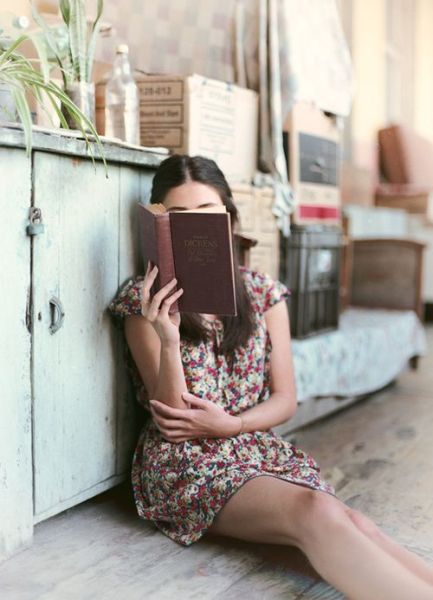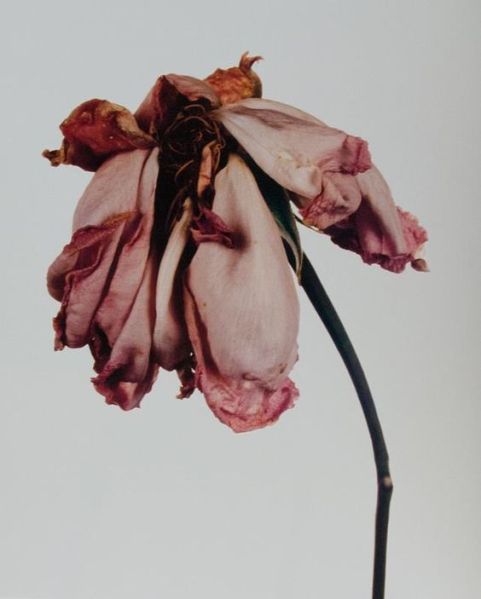Why do people dislike clichés? And this is something I’m asking out of genuine curiosity, because I don’t. Dislike them, that is. (Are double negatives a cliché?)
For me, clichés are a way of approaching and understanding the world. Clichés are patterns, a fundamental part of any culture or family. A cliché is an overused phrase or element that most people believe betrays a lack of original thought, but I disagree. I just see a cliché as something that happens over and over again, and since I learn through repetition, it’s never a problem. My definition and understanding may be slightly skewed, so I’ll be using “clichés” and “tropes” interchangeably, where a trope is a reoccurring theme or motif in a work or genre.
Tropes are fundamental when a person is writing, because they essentially define a genre and your target audience. A fantasy story will have some sort of kingdom system, a horror story will have suspense and center around something dark and deadly. These tropes, these clichés, are the core of the genre and how we identify it. The tropes set the scene for the type of atmosphere an author is trying to create, and it would be incredibly difficult to create a story without them.
Clichés and tropes especially important to me because I am a self-defined “mood reader/viewer/consumer.” I consume specific stories and specific story elements at specific points in time because that is what I am in the mood for: the political upheaval and magic of a fantasy setting or the shouting and long speeches of hope from a shounen anime. What I read, or watch, depends entirely on what I know I need at that moment in time – I use books and stories to help me sort through specific problems that I’ve been thinking about for a long time. For example, if I’m feeling particularly stressed or scared, I’ll read a high-stakes action-fantasy with lots of death and despair to a) see how the characters in the story cope with their fear and how I can adapt that approach to my own thinking or b) remind myself that my life is never going to be as bad as theirs. If I’m feeling lonely, or out of place, I’ll watch anime that I know is going to be full of teamwork and the power of friendship and hope and all those other sickly-sweet tropes. Tropes and clichés are exactly why I approach specific stories in the first place, so it’s always been difficult for me to understand why people won’t read a story because the clichés are present.
Another reason why I think clichés and tropes are good in writing is because I’ve found that they make character development and world building so much easier. I’ve said it before, and I’ll say it for as long as I can: characters are the most important thing to me in a story. The plot can be as stale as seven-day old bread, but I’ll still love the story if the characters are complex and relatable. If a writer uses tropes or clichés as a starting point, it means they have much more time to focus on the characters and the finer details of the world those characters find themselves in. Instead of spending ages on exposition and explaining the larger, more basic details of a story, authors have a “base model” of the world that they can directly work from. “This is a fantasy story. There are swords and magic and some evil guys and some good guys and the occasional badass swordsman with his shirt off in the training arena.” These specific parts of the story are understood by the reader before even opening the book, so the author can spend more time on creating diverse and interesting characters. Take a look at the Shades of Magic series by V. E. Schwab for example. The “base model” for the world is very simple – there are four alternate realities and there are specific people who can move through those realities. The reader assumes that these different realities have very little to do with each other and have very different cultures and people as a result. Instead of explaining why the worlds are so different and how they interact with one another, the author uses one or two pages to outline the basics of the world and then uses the rest of her “world-building budget” to create one of the most interesting and unique magic systems I have ever read about. And it works – because of the assumptions the reader made at the beginning – because basic aspects of the world were already understood. (It’s an excellent series by the way – I’d definitely recommend it.) Basically, the tropes provide the outline of the story, and the author colours in these tropes using small, fun details about the world and characters that we never would have considered ourselves.
Note that I think these tropes are merely a starting point. You can’t build a story out of tropes; otherwise computers would have been writing for far longer than anyone else. But there are very few people who actually do this. Most writers care about their work too much to just parrot back the stories that they have consumed themselves. Most stories are complex and three-dimensional, even if they don’t appeal to everyone.
We’re getting to the part of this discussion where I assume that I know what other people are thinking. This is my way of trying to understand the other side of the argument, so if there’s anything you disagree with in this next part, let me know, because I am completely open to someone correcting my way of thinking.
I think part of the dislike for clichés comes from the fact that people dislike specific clichés and then apply the whole “this one part is bad, so everything else must be bad too” way of thinking. Which is human. And something I can understand. I, for example, despise love triangles and Mary Sue-type characters (which, by the way, can also be male,) and because of this dislike, I tend to stay away from stories that I know include these tropes. I don’t actively read science fiction, because I dislike a large number of the specific tropes that make up a science fiction story. And this can be applied to certain music genres as well. I don’t know a lot about music, but I am aware enough to know that certain styles of music, pop or rock or country or electronica, will have notes or melodies or tunes that are specific to that style of music, and if you don’t like that note or melody or tune, you probably won’t enjoy that music genre in general. And of course, there are tropes that I like that most people don’t. I’m a sucker for any “power of friendship” story, but I understand why people don’t like it because it’s unrealistic or too sappy. It makes sense to dislike certain elements, and not everyone is going to love every single trope. But that doesn’t mean that tropes themselves are bad. I won’t read a specific story because I know what type of tropes it has, but I’ll never turn down a book because it has tropes at all.
Another reason why I think people may not enjoy clichés is because they don’t like the repetitiveness. They read to be surprised, to experience new things, to learn and discover. They’re people who read for the adventure of reading, rather than for making new friends like I do. It’s difficult to discover a new story if the plotline is one that you’re read dozens of times before. Since repetitiveness isn’t a problem for me, this isn’t a sentiment I can directly relate to, but it is one I can understand. Because it’s an opinion, and most opinions are completely valid, even if a person can’t find the exact words to explain why they feel a certain way.
And that’s the crux of the matter. I don’t think clichés and tropes are bad. But I don’t blame anyone who thinks they are. Entertainment is always made for specific groups of people, so once you find something that you love, you can explore more elements and forms in that area of interest, even if it strays away from what most people love. So let yourself enjoy the things that you enjoy and make sure that you surround yourself with people who let you do that, because life is too short to argue opinions all day long.
Featured image found at: http://www.flickr.com/photos/nikalashka/8142771438/








